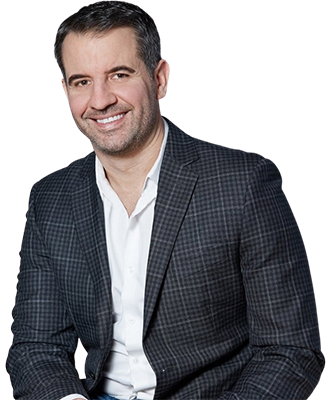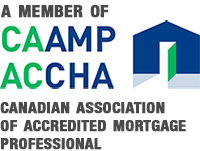


I would really like to thank you Jesse for your help and guidance during my remortgage with you. Your professional advice and 7 day 24hr service is un touchable in this day and age. I was always scared to death thinking about a remortgage based on how most banks work and how they prolong the process, usually to the point that you are discouraged by the time it is completed, but with you Jesse, it was a walk in the park and very quickly completed and I will certainly reference any one I hear of that is thinking of a remortgage renewal. Most of all I want to thank you for all the cash that you freed up for me, with your great interest rate and terms you were able to save me more than $800.00 per month.
Thanks again!! Your help was much appreciated.
JESSE BRUN
Mortgage IntelligenceLicense #10428
Mortgage Broker (NB)
Mortgage Agent Level 2 (ON)

Bad Credit Home Equity Loan Lenders Brant ON
To get approved for a home equity loan with bad credit in Brant, ON will require you to have a fair amount of equity in your home. Bad credit Home Equity Loan lenders lending in the Brant ON area will sometimes lend up to 75% of the value of your home. Getting a home equity loan with bad credit in Brant ON will have to be done using an experienced mortgage agent. If you have long standing debts such as visas, lines of credit, 2nd mortgage or any other loans I can help you to use your home equity to pay off all those obligations. I can also help you get a bad credit home equity loan to pay for income tax arrears, property tax arrears, collections, judgements and any other obligation you may need to pay off immediately.
To give you a clear idea, I am providing you a detailed before and after "BAD CREDIT HOME EQUITY LOAN BEFORE AND AFTER SCENARIO".
| Example # 1 (before home equity loan) | ||
| Current Situation | Balance | Payment |
| Mortgage (5.00%) | $152,200 | $959.00 |
| Unsecured Line | $15,000 | $300.00 |
| Credit Cards/Loans | $25,000 | $900.00 |
| Penalty | $2,300 | $0.00 |
| Total | $184,500 | $2,150 monthly |
Below is scenario after doing a home equity loan and paying off all those obligations.
| New Mortgage | Balance | Payment |
| Mortgage (5.00%) | $184,500 | $1150.00 |
| Unsecured Line | Paid off | $0.00 |
| Credit Cards/Loans | Paid off | $0.00 |
| Penalty | Paid off | $0.00 |
| Total | $184,500 | $1150 monthly |
The above scenarios are showing that you would save $1,000 per month. That means you are saving $12,000 per year. In 5 years your net saving is $60,000. Providing most of the debts are paid off!
Because interest rates are so low my last 8 clients are saving over $1200 per month for the next 5 years because they paid off all their visas/loans by getting a home equity loan with my prompt services.
You can do the same if you have a good amount of equity in your home. There's a big possibility to save you lots of money. There is no reason for us to give away our hard earned money if we don't have to!
If you are willing to use my services to save money please fill out the quick and short application form on the top left hand side and we will contact you within 8 business hours. Thank you and we look forward to helping you soon!
What are the Advantages of doing a home equity loan or home refinance?
One of the reason a person may get a home equity loan is to pay off their current loans in order to lower the interest rate on this liabilities (loans) . Getting a lower interest rate can have a big impact on your monthly payments and can potentially save a person thousands of dollars per year. Since credit cards and personal loans are often higher interest than a mortgage some people will refinance and consolidate all their debts into their mortgage and at the same time lower their overall monthly payments. Some people simply refinance to take out some of the equity they have in their homes in order to use the money for something else.
With interest rates in Canada hovering at near-record lows and a steady increase in property values, a home equity line of credit has become an appealing financing choice for consumers and financial institutions alike. A home equity loan, also referred to as a HELOC, offers consumers access to a pool of funds – using the equity in their home as security – which they can use as they like.
Home equity loans and lines of credit appeal to financial institutions because they are secured by property, while consumers like credit lines because they can draw from them at will and at an interest rate much lower than any credit card. And unlike mortgages and unsecured loans, consumers can simply pay down the principal of their line of credit to make more funds available to them. The favourable interest rates, coupled with the revolving credit and the freedom to draw large amounts at will, have made home equity lines of credit a popular way to borrow.
What Can a Line of Credit Be Used For? Is a HELOC or Home Equity Loan Right for You?
A line of credit can be used for anything from home renovations to big ticket purchases. How much you spend, and what you spend it on, is entirely up to you. As such, having a home equity credit line can be a terrific financial tool if you’re disciplined and diligently stick to a payment plan. However, for a lot of people, having a line of credit can be a means of getting – and staying – in debt.
Home Equity Loans, Mortgages, and Home Equity Line of Credit: What’s the Difference?
A home equity line of credit, a home equity loan and a mortgage are similar in that all 3 use your home as security for the debt. All 3 can also be used to consolidate debt. But that’s where the similarities end.
What’s a Home Equity Loan?
A home equity loan is when someone obtains a new 1st mortgage or 2nd mortgage using the equity in their home. Depending on the reason for getting a home equity loan, a person may need a sufficient amount of equity in their home in order to be approved. The term “home equity” is the difference between the amount owed on your current mortgage and the current value of your home. Even with bad credit many brokers or lenders may be able to help you if you have sufficient equity in your home.
What is a Mortgage?
A mortgage is a loan specifically to buy property. The mortgage uses the property as collateral for the loan, meaning that if the borrower doesn’t repay the loan, the lender has the legal right to seize the property. Like any loan, interest is charged on top of the principal, and each mortgage payment normally consists of repayment of principal plus interest.
What is a Home Equity Line of Credit, Home Equity Credit Line or HELOC?
Like a home equity loan, a home equity line of credit (HELOC) is a loan that uses the equity of your home as collateral, only the loan takes the form of a revolving line of credit instead of a lump sum. A credit line offers greater flexibility, in that you have access to a pool of funds, which you can use for emergencies, debt consolidation, a home improvement project, or even day-to-day spending.
Payments towards your line of credit are flexible as well, since you can pay as much off as you want, or as little as interest only, depending on your loan agreement. The line of credit also comes with a variable interest rate that is much lower than the interest rates on credit cards. And like a credit card, the payments you make each month towards what you owe free that credit up for you to use again.
How Revolving Lines of Credit Work
Like credit cards, a home equity line of credit is a temptation to spend money you don’t actually have. Both credit cards and a line of credit are excellent examples of revolving credit, where you can borrow money up to a certain pre-approved limit, and each time you make a payment, you’ll have the credit available to you.
For example, if you spend $20,000 of your $40,000 line of credit and you make a $10,000 payment, your available credit goes back up to $30,000 (minus interest, of course). And that means you have $30,000 available to spend on home repairs, gas, groceries or even to pay off high interest credit card debt.
Revolving Credit Can Lead to Serious Debt Problems
Serious debt problems and financial trouble can result from living a credit-dependent lifestyle. With revolving credit, there are no fixed monthly payments and only a minimum payment is required. Without a fixed payment, it’s easy to lose track of what you owe or wait too long to pay off the debt.
The problem can be much worse if the line of credit only requires minimum payments. With interest only payments it takes someone much longer to pay off the line of credit or home equity loan, and in some instances, they end up going down the “never-never” road and never pay off their debt.
Decide if Your Purchase is a Need or a Want Before You Pay for Something with a Home Equity Line of Credit
Before using your home equity line of credit to make a purchase, ask yourself whether you can make the same purchase with cash. If it’s something you can easily pay for in cash, do just that. If it’s a big-ticket item that requires credit, determine whether the purchase is a necessity and how quickly you can pay it off, taking into account the fluctuating interest rate.
If it’ll take you years to pay off that purchase, give yourself a few days to mull it over. You may find that after a few days and a careful look at your household budget, you’ll realize that you don’t really need – or want – the item anymore.
How to Deal with Debt from Revolving Credit Lines or Loans
There are a few ways to avoid getting into trouble with revolving credit and living a credit-dependent lifestyle:
- Create and actively use a realistic household budget that accounts for all of your weekly, monthly and irregular/seasonal expenses. It’s often these “seasonal” expenses that get paid for with a line of credit.
- Ask for help if you need it. If you’re in debt and struggling to get ahead, contact us by phone, anonymous online chat or email and one of our Credit & Debt Counsellors will be happy to review your situation with you.
- Talk to your lender about setting up automatic monthly payments that cover the interest and principal, so that you’ll have your line of credit paid down over a specified period of time.
- Set up automatic payments that cover more than just the interest with internet or online banking services yourself.
Understand How Variable Interest Rates Work and How They Affect You
The home equity line of credit interest rate is the lowest interest rate available on revolving forms of credit. The rates can be as low as Prime minus 1 per cent (with Prime currently hovering around 3 per cent), whereas some credit cards have rates as high as 29 per cent. A home equity line of credit also comes with a variable interest rate, which means the amount of interest you pay can fluctuate.
If the interest rates take a sudden upward turn, guess what happens? Your minimum payment also goes up.
Before signing up for a home equity loan or line of credit, estimate whether you can absorb the full balance of your line of credit at double today’s interest rates. Today’s interest rates are uncharacteristically low, so it’s important to keep in mind that your payments will likely go up before you’ve paid off what you owe.
A Credit Line Or Home Equity Loan Shouldn’t Be Your Personal ATM
A home equity loan or credit line can be a smart way to borrow, if you use it only for money emergencies and have a working household budget that lets you repay what you owe sooner than later. But rather than using a home equity line of credit as a financial safety net, borrowers often fall for temptation spending and use it to pay for everyday items, like electronic gadgets, groceries and new clothes. The frivolous use of home equity credit lines and loans has given rise to a borrowing phenomenon known as “using your home as an ATM.”
A line of credit can be a great financial tool for disciplined borrowers, offering low interest rates and flexible lending terms. But for those who don’t understand the implications of using low interest revolving credit, they could dig themselves deep in debt.


